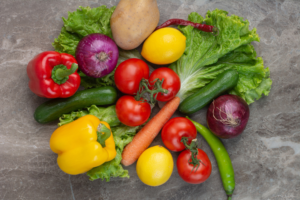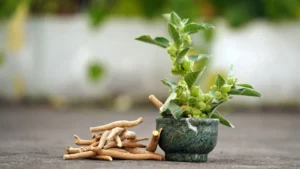An intestinal infection is characterized by diarrhea and, in some cases, severe stomach pain. These symptoms lead us to stop our routine and quickly think about what made us sick. Was it the last thing we ate or the greasy food we had for lunch? Gastroenterologists indicate that it is not always the last meal that is to blame, but rather it is often what we ate up to 48 hours ago.
Maybe you are working quietly when you feel an intestinal spasm that makes you pause your activity and go to the bathroom, and many times it even causes you to stay at home for a few days while your digestive system recovers after suffering from constant diarrhea and your body is dehydrated.
“When we have diarrhea or pain, we blame the last thing we ate. No food is blamed because if it was something fried, we assume it was the fat; if it was a salad, we think it was not properly disinfected. However, these foods are not always the ones that cause us discomfort,” says gastroenterologist Débora Aguilar.
The digestion process takes hours to complete. The stomach needs about four hours to digest food, then it moves it to the small intestine, which takes six to eight hours to absorb the nutrients and pass the rest to the colon. The remains are stored there while they ferment and form feces. The times vary from person to person, but I would not make the last foods the only culprits of an intestinal infection.
Types of intestinal infection
An intestinal infection, as its name indicates, is an infection caused by microorganisms that most often cause diarrhea. According to Hector Luna, an endoscopist, in 90 percent of cases of this disease, the main symptom is diarrhea.
There are three types of intestinal infection, which are differentiated by the microorganism that causes them:
- Viral intestinal infection: It is more common in childhood.
- Bacterial intestinal infection: This is more common in adults.
- Protozoal intestinal infection: caused by amoebas and giardia (the most common).
The specialist indicates that intestinal infections can put the lives of children at risk due to the dehydration they cause. “What can kill a person is the severe degree of dehydration, the loss of electrolytes, such as sodium, potassium, and water. If they are not replaced in time, it can have fatal consequences. Therefore, the emergency treatment is hydration,” he adds.
If the patient has gastroenteritis, an intestinal and stomach infection that causes vomiting, it is best to take him to the hospital for intravenous hydration.
Symptoms of an intestinal infection
An intestinal infection is characterized by watery diarrhea, nausea or vomiting, and pain or cramps in the abdomen. Sometimes fever and fatigue may occur.
Other symptoms of intestinal infection include dehydration, which can be identified by being very thirsty, urinating less than normal, having a dry mouth, decreased skin turgor, no tears when crying, and sunken eyes and cheeks.
Anyone with signs or symptoms of dehydration should see a doctor as soon as possible to avoid serious consequences. It is also vital to see a specialist if the adult or child has a change in mental status such as irritability or lack of energy, diarrhea for more than two days, high fever, frequent vomiting, six or more loose stools in one day, severe pain in the abdomen or rectum, and stools that are black or contain blood or pus, Mayo Clinic says.
How to get rid of stomach pain
“When the colon and intestine have an infection, in their desire to eliminate the foreign agents that are causing their discomfort, they cause stomach spasms. So the most common medication for this pain is antispasmodics, which are sold over the counter and come in different brands. But their use is recommended only when there is pain,” says Luna.
In addition to this medicine, chamomile and cinnamon infusions can also help to relieve pain, thanks to their anti-inflammatory properties, says Alejandro Guzmán, a naturopath. Likewise, basil and mint tea is effective against spasms and abdominal inflammation. The idea is to put some mint and basil leaves in a cup of boiled water and let it sit for at least five minutes, then strain it and drink it.
Jasmine tea also contributes to this cause; it is recommended to consume it as an infusion. In addition, rice water protects the intestinal flora that is affected by an infection and reduces pain. To prepare it, place three tablespoons of rice in a cup of water and boil it over low heat. When it reaches boiling point, remove it from the heat and let it rest at room temperature. Then strain it and sweeten it with honey.























+ There are no comments
Add yours